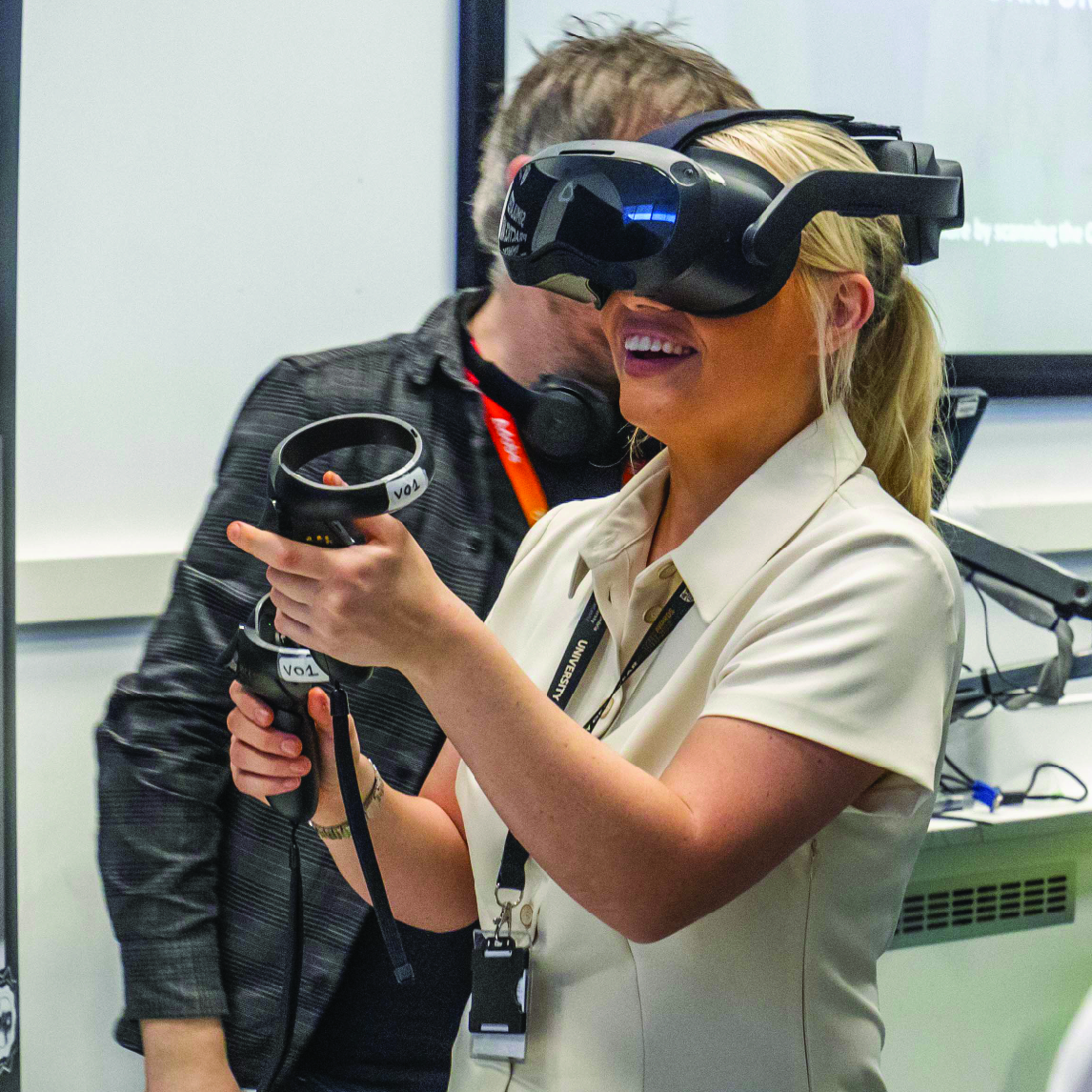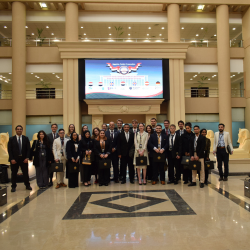-
Study
-
Quick Links
- Course Search
- Unlock Your Potential
- Still time to Apply
- Higher and Degree Apprenticeships
- Continuing Professional Development
- Still time to apply
-
Undergraduate
- Course Search
- Application Guides
- UCAS Exhibitions
- Foundation Years
- Fees and Funding
- School & College Outreach
- Information for Parents
-
Postgraduate
- Course Search
- Application Guide
- Postgraduate Research Degrees
- Flexible Learning
- Fees and Funding
- Change Direction
- Register your Interest
-
Student Life
- Students' Union
- The Hub - Student Blog
- Accommodation
- Northumbria Sport
- Support for Students
-
Experience Northumbria
- Open Days & Events
- Virtual Tours
- Campus Tours
- Life in Newcastle
-
-
International
International
Northumbria’s global footprint touches every continent across the world, through our global partnerships across 17 institutions in 10 countries, to our 277,000 strong alumni community and 150 recruitment partners – we prepare our students for the challenges of tomorrow. Discover more about how to join Northumbria’s global family or our partnerships.
View our Global Footprint-
Quick Links
- Course Search
- Undergraduate Study
- Postgraduate Study
- Information for Parents
- London Campus
- Northumbria Pathway
- Sign up for Information
-
International Students
- Information for Students
- International Events
- Application Guide
- Entry Requirements and Education Country Agents
- Global Offices
- English Requirements
- English Language Centre
- International student support
-
International Fees and Funding
- International Undergraduate Fees
- International Undergraduate Funding
- International Masters Fees
- International Masters Funding
- International Postgraduate Research Fees
- International Postgraduate Research Funding
-
International Partners
- Agent and Representative Network
- Global Partnerships
- Global Community
-
International Mobility
- Information for Northumbria Students
- Information for Incoming Exchange Students
-
-
Business
Business
The world is changing faster than ever before. The future is there to be won by organisations who find ways to turn today's possibilities into tomorrows competitive edge. In a connected world, collaboration can be the key to success.
More on our Business Services -
Research
Research
Northumbria is a research-rich, business-focused, professional university with a global reputation for academic quality. We conduct ground-breaking research that is responsive to the science & technology, health & well being, economic and social and arts & cultural needs for the communities
Discover more about our Research -
About Us
-
About Northumbria
- Our Strategy
- Our Staff
- Place and Partnerships
- Leadership & Governance
- Academic Departments
- University Services
- History of Northumbria
- Contact us
- Online Shop
-
-
Alumni
Alumni
Northumbria University is renowned for the calibre of its business-ready graduates. Our alumni network has over 246,000 graduates based in 178 countries worldwide in a range of sectors, our alumni are making a real impact on the world.
Our Alumni - Work For Us
What will I learn on this module?
This module is designed to support you in independently designing and conducting a substantive original research project on a built environment topic of your own choice and aims to provide you with an opportunity to design and conduct a substantive piece of investigative work that is directly related to your programme of study. You will consolidate and apply your independent research skills developed whilst studying your first degree and on the Real Estate Concepts and Research Methods module KA7035) to answer a research question or test a hypothesis of your choosing. You will assemble and review relevant scholarly literature and data to present a cogent, reasoned and objective critique of published scholarly work on your chosen topic, in order to define a precisely focus for your research. Ultimately you are required to submit an original 12,000 word dissertation that is analytical and demonstrates an accurate interpretation and clear presentation of original research findings.
In the course of the module you will develop expertise in the following:
• identifying an appropriate research topic
• critically reviewing relevant academic literature;
• formulating research questions/hypotheses and appropriate methods of inquiry;
• collecting your own data and/or using existing datasets and literature
• analysing and interpreting your results using appropriate quantitative, statistical and/or qualitative techniques,
• relating your findings to existing and up-to-date literature and theory;
• objectively appraising the ethical considerations of conducting research; and
• independently managing and implementing your own research project.
How will I learn on this module?
Module learning is largely by tutored independent study underpinned by the Research Methods syllabus you will have studied on Module KA7035 . You will be allocated a dissertation supervisor who will guide you through the process of executing and writing-up your study, with whom you will be expected to communicate regularly to discuss and reflect upon progress, whilst maintaining a research process archive containing all correspondence and documentation associated with the process of conducting your research. Informal verbal and formal written formative feedback will be provided throughout by your supervisor.. You will be expected to take ownership of your own learning through a process of self-reflection of your own needs and, using the guidance provided, ensuring you master all the skills needed to successfully complete your research project. By applying what you have learnt and engaging in the process of research itself you will become more self-sufficient and gain key employability skills of time-management, retrieval and critical application of relevant knowledge and information, effective communication, problem solving and analysis, and make informed decisions.
How will I be supported academically on this module?
Module guidance will be provided in a comprehensive Module Handbook complemented materials and information on academic writing, time management, reviewing literature, referencing etc. which is available through the University’s Skills Plus modules. Examples of previous submissions and additional learning materials will be available on the module’s Blackboard site You will also be supported by a digital reading list of generic reading covering research methods, data collection techniques and critical analysis.
Your learning journey will be guided by 1:1 face to face/Skype meetings, conference and telephone calls with your dissertation supervisor who will:
• guide you through the research process,
• advise you on ethical issues involved in carrying out your research;
• be available to provide advice and answer questions on assessment
• giveconstructive feedback on your literature review chapter to help you improve both content and academic writing
• provide summative feedback on the final dissertation submission.
A Research Process Archive will be used to record meetings with your supervisor and other formal and informal feedback and interaction with your research project
What will I be expected to read on this module?
All modules at Northumbria include a range of reading materials that students are expected to engage with. Online reading lists (provided after enrolment) give you access to your reading material for your modules. The Library works in partnership with your module tutors to ensure you have access to the material that you need.
What will I be expected to achieve?
Knowledge & Understanding:
MLO 1 – You will explore published literature, information and data to inform your identification of a feasible and focussed research topic
formulating research questions/hypotheses on your chosen topic and relate these to existing subject knowledge and literature
MLO 2 – you will integrate and modify ideas, concepts and theoretical models form scholarly literature and critically appraise their applicability to your research topic
MLO 3 – You will develop an understanding of how to evaluate different methodological approaches to propose a clear and logical research design, data collection and analysis strategy appropriate to your research topic and its context
Intellectual / Professional skills & abilities:
MLO 4 – you will learn how to write a critical appraisal and detailed analysis of related and relevant scholarly literature that recognises academic authority
MLO 5 – you will design and implement a detailed programme of research, data collection and analysis that integrates research aims, data requirements and standardized methods of collection and analysis
MLO 6 – you will demonstrate that you can take into consideration theoretical, methodological, ethical and other constraints and limitations
MLO 7you will interpret and evaluate the findings of your research in relation to other published research on the topic
MLO8 – you will recognise the validity of your research findings and the limitations of conclusions drawn
Personal Values Attributes (Global / Cultural awareness, Ethics, Curiosity) (PVA)
MLO 9 – you will demonstrate the capacity for independent working, critical reflection and autonomous decision making, initiative and creativity in problem solving and effective problem management
How will I be assessed?
You are required to submit an original 12,000word dissertation (a written record in an academically acceptable format of a completed research project) that is analytical and summative in nature, covering methodological issues related to the researchable subject topic, and demonstrating an accurate interpretation and clear presentation of original research findings.
Dissertation (100%) - the dissertation is the summative assessment for this module. You are expected to evaluate, appraise and critique ideas, concepts and theoretical models, and to identify any biases and assumptions inherent in these generic components of research, before developing focused analytical and evaluative skills that are based on a thorough and systematic approach to the handling and manipulation of primary and secondary data. You will then write up this original work that is analytical and summative in nature, covering methodological issues related to the researchable subject topic, and demonstrates an accurate interpretation and clear presentation of original research findings (MLO1 – MLO 9)
Formative assessment will be provided from the outset based on your original Research proposal previously submitted as part of the assessment of module and your developing dissertation. KA7035 Real Estate Concepts and Research Methods.
Pre-requisite(s)
None
Co-requisite(s)
None
Module abstract
Course info
Credits 60
Level of Study Postgraduate
Mode of Study 2 years Full Time (with Advanced Practice in the second year)
Department Architecture and Built Environment
Location City Campus, Northumbria University
City Newcastle
Start September 2025 or January 2026
All information is accurate at the time of sharing.
Full time Courses are primarily delivered via on-campus face to face learning but could include elements of online learning. Most courses run as planned and as promoted on our website and via our marketing materials, but if there are any substantial changes (as determined by the Competition and Markets Authority) to a course or there is the potential that course may be withdrawn, we will notify all affected applicants as soon as possible with advice and guidance regarding their options. It is also important to be aware that optional modules listed on course pages may be subject to change depending on uptake numbers each year.
Contact time is subject to increase or decrease in line with possible restrictions imposed by the government or the University in the interest of maintaining the health and safety and wellbeing of students, staff, and visitors if this is deemed necessary in future.
Useful Links
Find out about our distinctive approach at
www.northumbria.ac.uk/exp
Admissions Terms and Conditions
northumbria.ac.uk/terms
Fees and Funding
northumbria.ac.uk/fees
Admissions Policy
northumbria.ac.uk/adpolicy
Admissions Complaints Policy
northumbria.ac.uk/complaints









